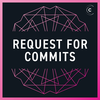My roadmap to become a blockchain engineer
Preethi Kasireddy, a self-employed blockchain and smart contract Engineer, joined the show to talk about why she left the best job in the world at Andreessen Horowitz on the deal team, how she got entrepreneurship envy, the roadmap she laid out in 2015 and where she’s at today as an engineer, her excitement for blockchain-based technologies, and why blockchains don’t scale.
Matched from the episode's transcript 👇
Preethi Kasireddy: Yeah, sure. That’s a great question. I’ll be honest, one of the things that I’m always excited by are problems that are not figured out, and blockchain is definitely one of them in the sense that there is this amazing technology that got created, but the actual applications and use cases have yet to be created, and there’s so much room for creativity and innovation. I’d say that’s one of the main reasons why I’m so attracted to this industry… Because I naturally have the entrepreneurial spirit, I wanna solve unsolved problems, and that’s one of the reasons why I’m gravitating to it. But at a more fundamental level, I think the technology itself is super interesting.
I think earlier you were saying how blockchain is interesting as a digital currency… I’d go a little bit further than that and say I actually don’t get excited by digital currency per se, because digital currency is just one application of the blockchain. There’s so many other applications that I think have potential that haven’t been created yet, and I’m more excited about those applications. In my opinion, it’s really hard for the current currency system in any nation – for example, take the U.S. For cryptocurrency or digital currency to replace fiat currency, that would take a lot. The government has a really tight control over the monetary policy and I just don’t see what benefits digital currencies provide today that would make people switch over, that would make the government friendly to this, and so forth… Because in the end, what digital currency is - it’s completely decentralized, completely open, completely censorship-resistant, which is not something any government really wants.
So for me, I’m more excited by what else blockchain enables. At a fundamental level, blockchain is a decentralized technology where it’s maintaining a ledger of transactions or basically state changes, and the state changes are cryptographically secure because they are maintained by something called the consensus process. This consensus process in Bitcoin or Ethereum is called proof of work, where a bunch of miners are there and they run a bunch of complex computations to validate these transactions, and they get paid for validating this blockchain. So the entire chain is decentralized, it’s trustless, because there’s no need to trust any central party to maintain this database or this ledger, and then it’s completely censorship-resistant because you can’t have really any central authority trying to censor it… And it’s completely secure, because it’s cryptographically secure. So with those primitives you can do just so much on top, and that’s kind of what I’m excited by.







